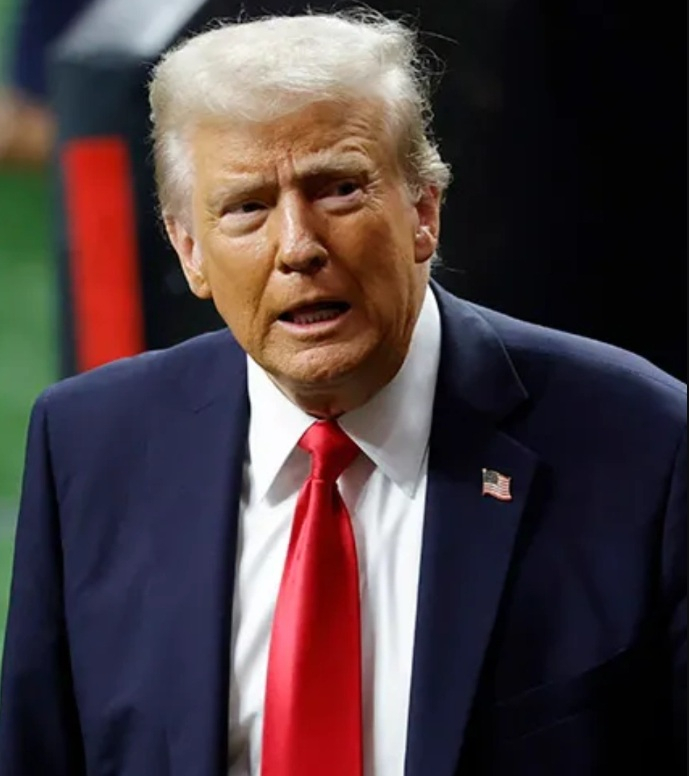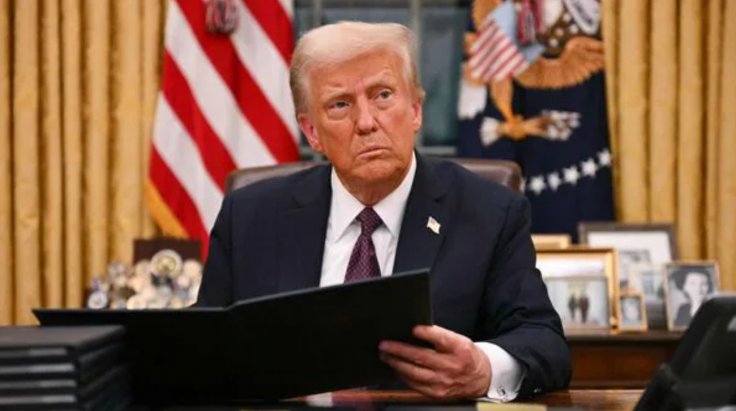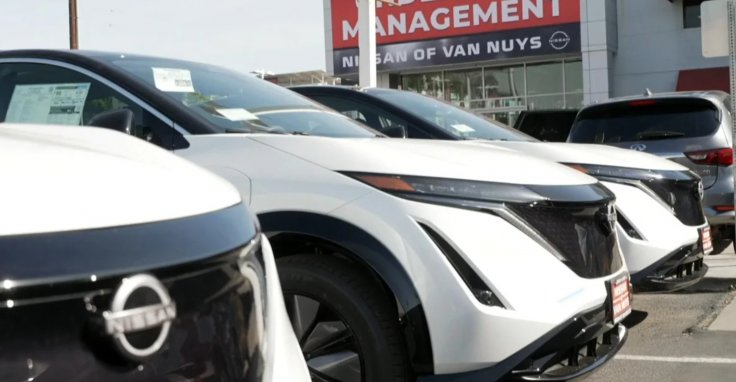President Trump announced a new 25% tariff on foreign-made cars on Wednesday, impacting nearly half of all vehicles sold in the U.S., arguing that it would strengthen domestic production as he tries to spur business in the United States in his second term.
The 78-year-old leader made the announcement from the Oval Office, claiming that the measure "is gonna lead to the construction of a lot of plants" for domestic car manufacturing. "What we're gonna be doing is a 25 percent tariffs on all cars that are not made in the United States," Trump told reporters in the Oval Office before adding, "Business is coming back to the United States."
Trump's Tryst to Spur Domestic Production

Trump said that the 25% tariff, set to take effect on April 2, would apply to both U.S. "friends and foes," describing it as "modest." He is signing an executive order aimed at helping the auto industry "thrive like never before." "It will lead to tremendous growth in the automobile industry," the president added.
White House staff secretary Will Scharf told Trump that the action is expected to generate $100 billion in annual revenue, though some analyses indicate it could significantly decrease import levels.

A Trump administration official later confirmed that the new tariff would also cover auto parts and would be added on top of the existing 2.5% tariff on cars and 25% tariff on light trucks.
Trump dismissed concerns that the new tariff would lead to higher prices for Americans, saying, "We're going to have the best economy ever."
However, experts predict that vehicle prices could increase by several thousand dollars as a result of the policy.
Over half of the vehicles sold in the U.S. are manufactured abroad, primarily in Mexico, Canada, Japan, South Korea, and Germany. An official said that cars produced in Canada and Mexico would be taxed depending on the proportion of foreign parts used in their construction.
"If a car from Mexico comes in with 50% American parts and 50% foreign parts, the tariff will be 50% of 25%, which is 12.5%," the official said.
"The foreign trade cheaters have turned America into a lower-wage assembly operation for foreign parts that threatens our national security because it's eroded our defense and manufacturing industrial base," said White House trade adviser Peter Navarro.
Too Early to Feel Impact
The Anderson Economic Group also warned that even cars manufactured in the U.S. could become more expensive if they rely on foreign parts affected by the tariffs. The organization projected that the cost of each vehicle for American consumers could increase by anywhere from $3,500 to $12,000.

Government trade experts had previously analyzed the potential impact of a 25% tariff on automobiles.
A report from the U.S. International Trade Commission last year concluded that imposing a 25% tariff on vehicle imports from outside North America would lead to a 73.9% decline in imports, raise the average price of cars in the U.S. by 5%, and boost variable profits from domestic production by 5.2%.
The Trump official said that tariffs on auto parts from Canada and Mexico would be introduced at a later date following an implementation review. The president also confirmed that these tariffs would stay in place for the rest of his term.
"Oh, this is permanent, yeah, 100%," Trump confirmed.
"I think ultimately we could probably have anywhere from $600 billion to $1 trillion [that] will be taken in over a relatively short term period, meaning a year from now, but starting right away, starting right away, I think we'll go from 600 to a trillion within two years," he said.
"This is a very simple system, and the beauty of the 25 — it's one number ... And that number is going to be used to reduce debt greatly in the United States and to build things and reduce taxes. Basically, I view it as reducing taxes and also reducing debt."

Earlier this month, Trump imposed 25% tariffs on imports from China, Canada, and Mexico, citing concerns over fentanyl smuggling and illegal immigration. However, he temporarily exempted most goods from neighboring countries.
Last month, he also introduced a stricter 25% tariff on steel and aluminum, removing previous exceptions for major importers.
On April 2, Trump plans to roll out a series of "reciprocal" tariffs targeting imports from countries that impose higher duties on U.S. goods or have significant non-tariff trade barriers. However, on Wednesday, he indicated he would be more "lenient" than anticipated.
He has also hinted at future tariffs on lumber, pharmaceuticals, computer chips, and copper.









